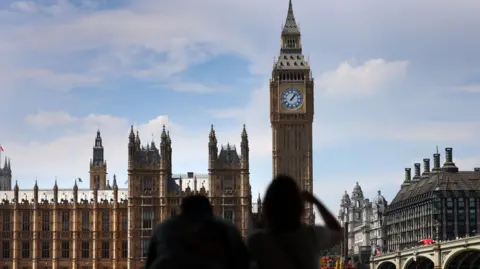The recent vote by Members of Parliament (MPs) in the UK has sparked significant discussions regarding welfare reform and changes to the benefits system. The parliamentary session shed light on a contentious bill focusing on amending the criteria for certain benefits within the welfare system. After extensive deliberation and negotiations, 49 Labour MPs went against their own party’s government, showcasing internal frictions and differing perspectives on the proposed reforms. Despite this dissent, the bill was ultimately passed with a considerable majority.
In total, the voting resulted in 335 votes in favor of the bill against 260 votes opposing it. This indicated a government majority of 75 votes, illustrating considerable backing for the reforms. The passing of this bill signifies a pivotal moment in British politics, particularly for those affected by the existing welfare system. Many people are keen to discover how their own representatives voted on this critical issue, especially as the implications of these reforms will resound through various communities across the country.
Presenting a visual breakdown of the voting demographics, a chart detailed support and opposition from various party affiliations. Among those who voted for the bill were 333 Labour MPs and three Independents. Conversely, the opposition included 100 Conservative MPs, 70 from the Liberal Democrats, 49 Labour MPs, and 42 from other political parties. Notably, 45 MPs chose not to partake in the vote, consisting of members from multiple parties, emphasizing the divisions within parliamentary ranks regarding the welfare reforms.
As the welfare bill moves forward, the next steps involve further scrutiny in what is termed the ‘committee stage.’ During this phase, MPs will engage in more in-depth discussions on the bill, examining specific provisions and potential consequences. The bill must then undergo a third reading, where it will again face a vote. Observers and stakeholders alike will be closely monitoring these developments, as this could ultimately shape the welfare landscape, affecting millions of beneficiaries across the UK.
Reactions to the bill’s passage have been mixed, often reflecting personal and political beliefs about welfare support. Advocates for welfare reform argue that the changes are necessary to streamline benefits and ensure that assistance is adequately targeted. However, critics express concern about the potential risks involved in altering eligibility criteria, fearing that vulnerable individuals who depend on such support may be adversely impacted.
Among the Labour Party, the rebel MPs raising concerns point to the necessity of safeguarding against any regressions in support for those most in need. This internal dissent within the Labour party illustrates a larger dialogue occurring within the party about its direction and commitment to social welfare, challenging members to reconcile their constituents’ needs with broader political strategies.
As discussions continue around this welfare reform bill, it is crucial to stay informed about the implications of legislative changes and how MPs represent the interests of their constituencies. Engaging actively with these developments can empower voters and residents, influencing their representatives to advocate for policies that prioritize the welfare of all citizens. Future analyses will look into the impacts of such reforms on various demographics, paving the way for informed discourse on welfare support in Britain.
Overall, the updated landscape of welfare legislation in the UK signals a complex interplay of political strategy, representation, and societal needs, urging a collective examination of the outcomes these bills are poised to effect. As we anticipate the next phases of this legislative journey, a commitment to inclusive and equitable welfare policies will remain a key focus for citizens, MPs, and advocacy groups alike.











